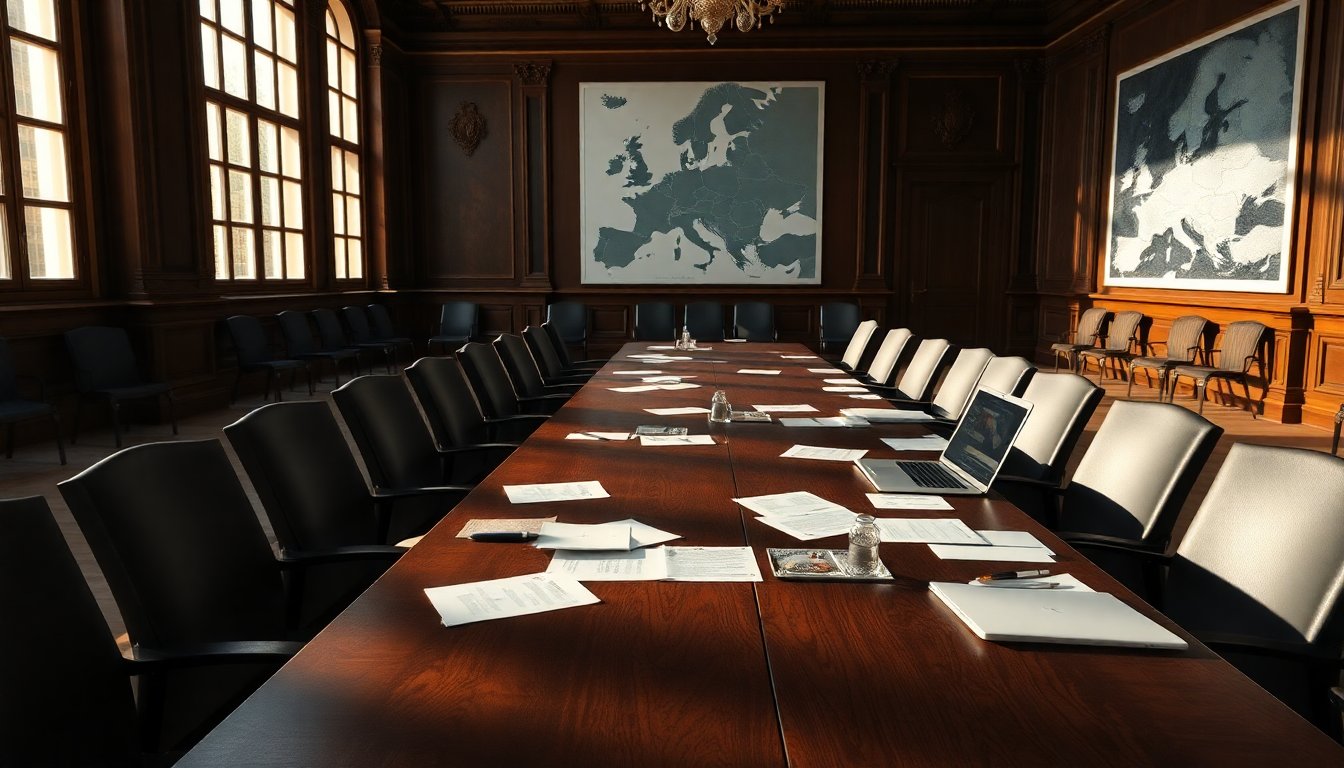Table of Contents
The ongoing conflict in Ukraine continues to be a significant concern for European leaders during recent summits. The urgency to support Ukraine has led to discussions about utilizing frozen Russian assets as a potential financial resource. However, Belgium, under Prime Minister Bart De Wever, has raised concerns about this strategy, citing legal issues and the need for explicit conditions.
In this context, EU leaders convened in Brussels, focusing on sanctions against Russia and possible financial mechanisms for Ukraine. The summit concluded late in the evening, with leaders addressing numerous journalists seeking insights into the discussions.
The facts
During the summit, the primary topic was how to leverage approximately €200 billion in Russian central bank assets that are currently frozen in Belgium. Most of these assets are held by Euroclear, an international financial services company based in Brussels. The idea of reallocating part of these funds to facilitate a €140 billion loan to Ukraine was met with skepticism from De Wever.
Although EU leaders aimed to present a united front on the issue, the wording of their agreement reflected a typical compromise, delaying a definitive decision rather than establishing a concrete plan. Belgium’s reluctance highlights the complexities of international finance and the potential repercussions of such actions.
Legal implications of using Russian assets
De Wever’s caution arises from concerns regarding the legal implications of utilizing frozen assets. He emphasized that any decision should depend on meeting specific conditions to prevent legal complications. This cautious stance reflects Belgium’s role as a financial hub in Europe and the associated responsibilities.
As discussions proceed, a consensus among EU leaders remains to maintain pressure on Russia through sanctions. These measures aim to restrict revenue sources that support the ongoing invasion of Ukraine. However, Russian officials have criticized these sanctions as ineffective.
Sanctions against Russia: A broader strategy
The latest sanctions introduced by the EU seek to further isolate Russia from international markets. They specifically target the Russian oil and gas sectors, prohibiting imports and expanding bans on vessels linked to Russia’s maritime operations. These sanctions are part of a broader strategy to diminish the Kremlin’s financial resources and encourage a resolution to the conflict.
In a show of solidarity, Ukrainian President Volodymyr Zelenskyy welcomed the new sanctions, expressing hope that they would bolster efforts against Russia. He stated, “We waited for this. God bless, it will work. And this is very important,” underscoring the significance of international support in Ukraine’s struggle.
Challenges of implementing sanctions
Despite these measures, enforcing sanctions has proven challenging. Analysts indicate that Russia has shown resilience against economic pressure, often finding methods to circumvent restrictions. As numerous sanctions packages have been imposed, the EU continues to navigate the complexities of reaching an agreement on definitive targets.
Moreover, the geopolitical landscape remains tense, as evidenced by recent military drills conducted by Russia, which serve as reminders of its military capabilities. The ongoing conflict has humanitarian implications and affects global economic stability.
In this context, EU leaders convened in Brussels, focusing on sanctions against Russia and possible financial mechanisms for Ukraine. The summit concluded late in the evening, with leaders addressing numerous journalists seeking insights into the discussions.0
In this context, EU leaders convened in Brussels, focusing on sanctions against Russia and possible financial mechanisms for Ukraine. The summit concluded late in the evening, with leaders addressing numerous journalists seeking insights into the discussions.1


